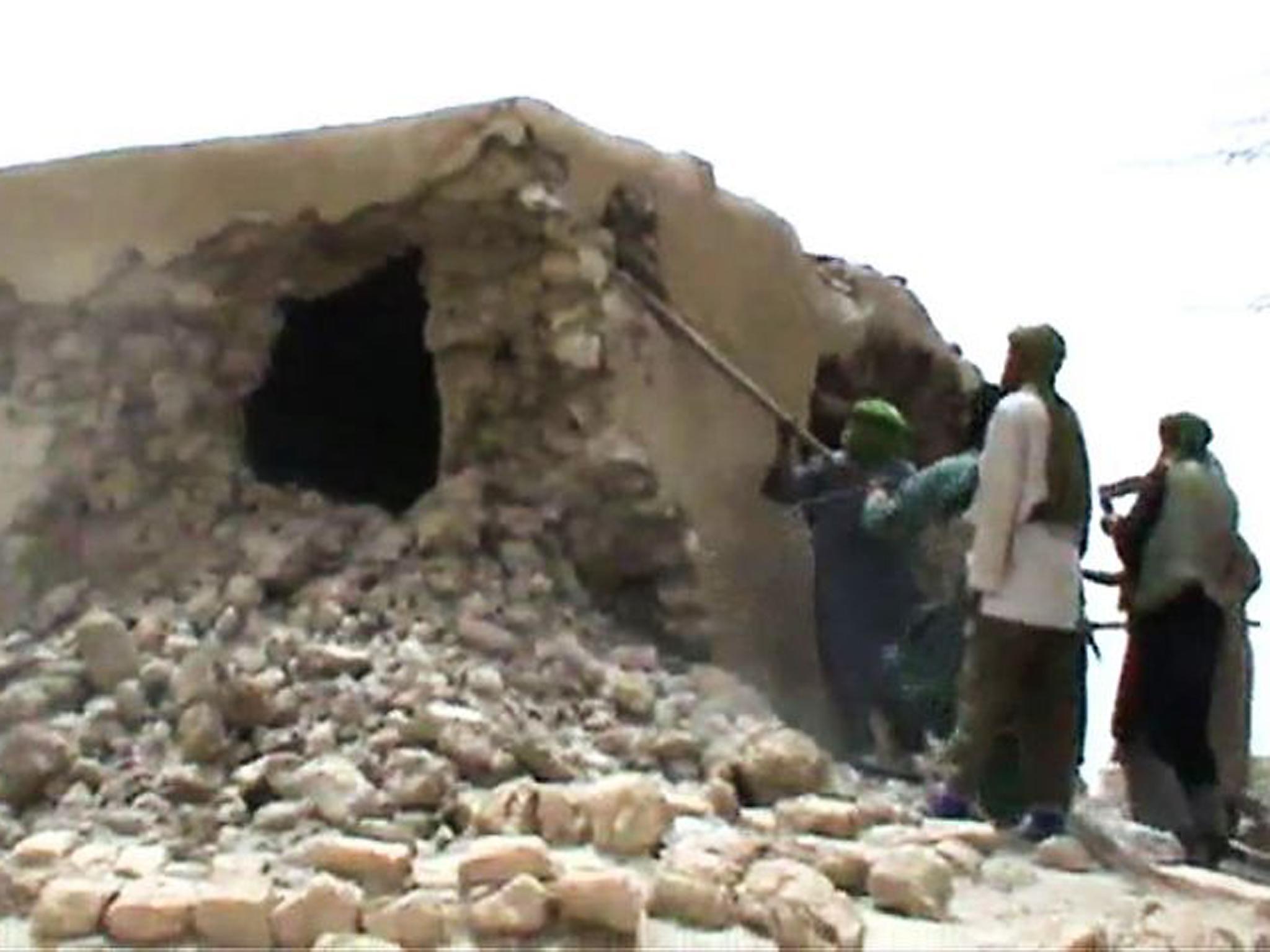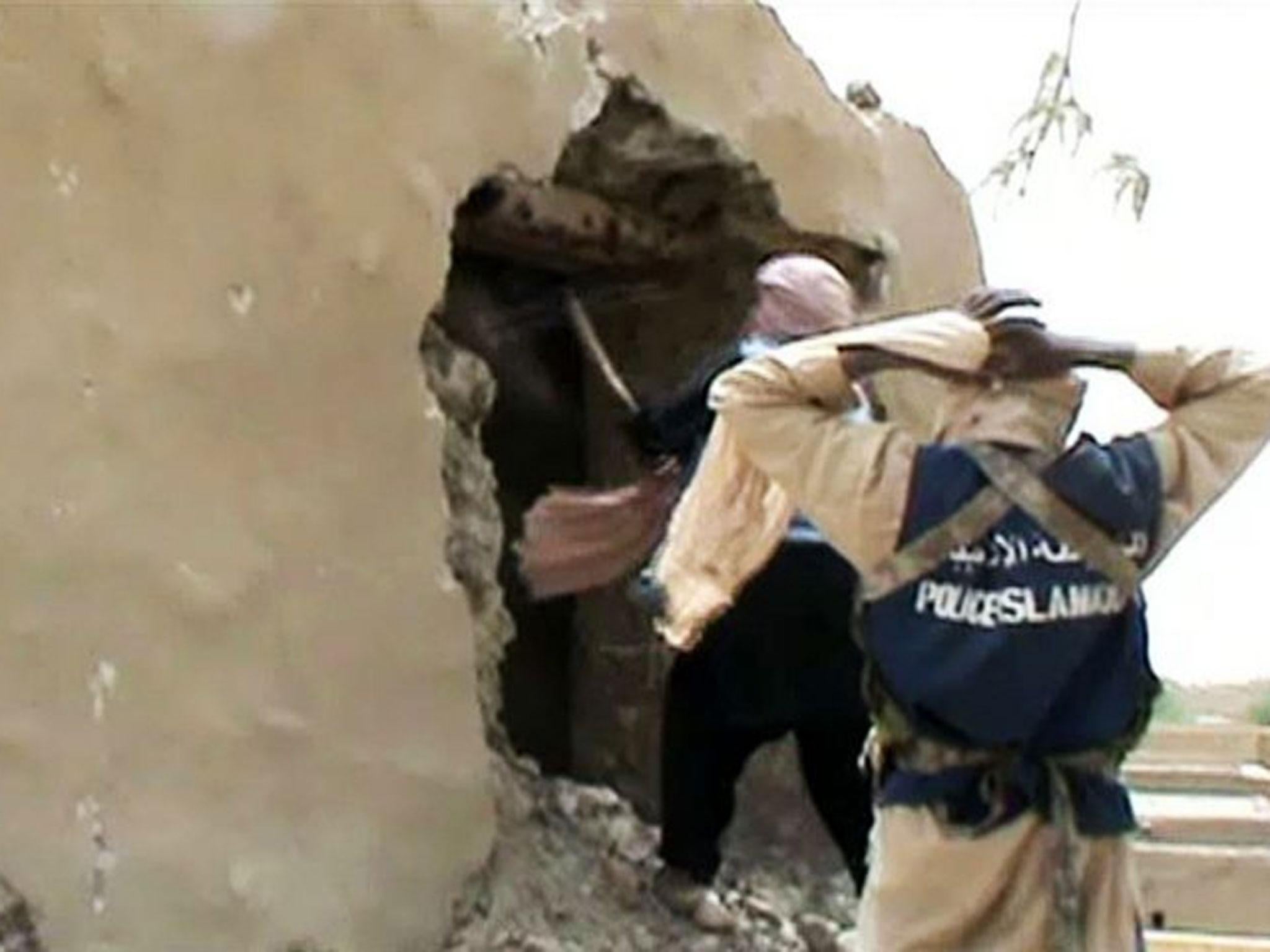ICC finds jihadist guilty of war crime over desecration of Timbuktu shrines
Ahmad al-Faqi al-Mahdi has been sentenced to nine years behind bars after admitting to the destruction of nine mausoleums during the city’s 2012 rebel occupation

Your support helps us to tell the story
From reproductive rights to climate change to Big Tech, The Independent is on the ground when the story is developing. Whether it's investigating the financials of Elon Musk's pro-Trump PAC or producing our latest documentary, 'The A Word', which shines a light on the American women fighting for reproductive rights, we know how important it is to parse out the facts from the messaging.
At such a critical moment in US history, we need reporters on the ground. Your donation allows us to keep sending journalists to speak to both sides of the story.
The Independent is trusted by Americans across the entire political spectrum. And unlike many other quality news outlets, we choose not to lock Americans out of our reporting and analysis with paywalls. We believe quality journalism should be available to everyone, paid for by those who can afford it.
Your support makes all the difference.The International Criminal Court has found a jihadist militant guilty of a war crime for the desecration of holy shrines in Timbuktu, in the first case of its kind.
Ahmad al-Faqi al-Mahdi was jailed for nine years after he admitted the damage during a two-day trial in August, asking for forgiveness and saying he was swept up in an “evil wave” by al-Qaeda and other Islamist groups.
The case marks a collection of firsts for the ICC: the first time it has prosecuted an individual over cultural destruction; the first time a radical Islamist militant has appeared before the court, and the first time a defendant has pleaded guilty.


Fighting for the Ansar Dine group, Al-Mahdi was leader of one of the "morality brigades" set up during the rebel occupation of Timbuktu in June and July 2012, and oversaw the destruction of nine mausoleums and a mosque door.
According to the founding treaty of the ICC, a person is guilty of a war crime if they are found to have “intentionally direct[ed] attacks against buildings dedicated to religion, education, art, science or charitable purposes, and historic monuments”, which are not military targets.
Prosecutors in Al-Mahdi’s trial noted that the destruction in the Malian city was among a series of recent cultural desecrations, including the razing of Palmyra in Syria by Isis; the bombing of Aleppo by Syrian combatants and Russia forces; and the destruction of the Bamiyan Buddhas by the Taliban in 2001.
A former teacher, Al-Mahdi was described by a former Madrassa tutor as the most brilliant pupil in his class, who had mastered the much-prized skill of learning the Koran by heart.
His lawyer, Jean-Louis Gilissen, defended him as “an intelligent, reasonable and educated man” who had sought to do good in response to a “divine message”.
Wearing a grey suit and striped purple tie, the defendant said nothing after the verdict and sentencing.
But earlier in the trial, Al-Mahdi urged Muslims around the world not to commit acts similar to those he had admitted.
"They are not going to lead to any good for humanity," he said.
The presiding judge at the ICC, Raul Pangalangan, said Al-Mahdi's apparently sincere remorse was among a number of mitigating factors reducing his jail term to nine years. The war crime of cultural destruction carries a maximum sentence of 30 years.
Founded by Tuareg tribes in the 5th century, Timbuktu has near mythical status as “the city of 333 saints” and the “Pearl of the Desert”.
Unesco says the mosques and holy places of Timbuktu played an essential role in the spread of Islam in Africa at an early period, and parts of its historic centre were added to the World Heritage list in 1988.
Join our commenting forum
Join thought-provoking conversations, follow other Independent readers and see their replies
Comments